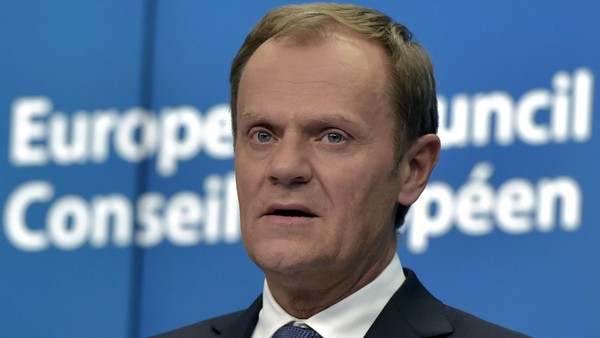笨狼发牢骚
发发牢骚,解解闷,消消愁希腊局势,(欧洲)陷在里面的国家机构团体企业没个好歹。打开电视,翻开报纸,没有任何一方讲事实的,都只说自己的理由。
都有理由。都是无赖。德国好到哪?光是这一闹,欧元低落,德国公司几个希腊都赚回来了。
法国?意大利西班牙?逗。
希腊,是唯一让中国股市闹剧觉得还没丢尽脸的一个事件,甚至中国贪官也掩盖得过去了。你要是找什么证明民主资本主义必然衰退(未必灭亡),这是最好的例子。

【参见】
为什么德国不惧希腊退出欧元区?
希腊

(此表不包括国际货币基金组织的一份)
详细解释的地方的多了,尽管有足够的了解,也未必能插上什么嘴,留着给专家们吧。想来想去,觉得最合适的解释是希腊逗乐单口相声演员Katerina Vrana的解释,“都是一笔糊涂账”。
I'm angry with everyone, in case you were wondering. #Greferendum
这是她在英国广播公司电台采访的几句话(电视台也有,很逗,但找不到视频,可惜了):
有人觉得希腊投票反欧洲削减条条是表示希腊不还债了,或希腊说退欧元体制了,实际上不是那么一回事儿。
投支持票,是希腊投降,政府下台,全面接受卖国条约。投反对票,希腊在欧盟、欧元区的环境一点儿也没变,希腊不愿意推出,其他国家不会因为表决改变主意,只是希腊政府在国内将反对派压住了,重新谈,最后还得让步。
换句话说,此次公投,是希腊总理齐普拉斯为了稳固国内地位而设,忽悠了国内百姓,也可以说跟自己打了个赌,如果他自己最后签署卖国协议,大家只好接受,与给欧盟、欧元区施加压力无关。希腊民众以为自己表了态,实际上很多百姓“支持”票是说支持什么也搞不清。
还有谁得益了?

今天(7月7日)美国进出口报告,出口锐减。

唉,中国。
【附录】
希腊真的很穷吗?
——希腊归来话债务之一
周东耀
《金融时报》
【默克尔变硬,接受希腊脱欧,从而逼迫齐普拉斯彻底投降。惨。】
2015.07.13
Greece talks: ‘Sorry, but there is no way you are leaving this room’
European Council president Donald Tusk
The closest Greece has come to leaving the eurozone was at around 6am on Monday morning, just as dawn was breaking over Brussels.
Alexis Tsipras of Greece and Angela Merkel, the German chancellor, decided after 14 hours of anguished talks that they had reached a dead end. With no room for compromise, neither saw any reason to carry on. Grexit was the only realistic option.
As the two leaders made for the door it was Donald Tusk, the president of the European Council, who moved to prevent the fatigue and frustration from triggering a historic rupture for the eurozone.
“Sorry, but there is no way you are leaving this room,” the former Polish prime minister said.
The sticking point was the size and purpose of a privatisation fund to be backed by sequestered Greek assets. Ms Merkel wanted the €50bn of sales to be devoted to debt repayments; Mr Tsipras saw that as a national humiliation that would cede control of assets worth almost a third of Greek national income. His alternative was a smaller fund, whose proceeds would be reinvested in Greece.
A compromise was ultimately found after more than an hour discussing nearly a dozen different structures. It was to be the coda to a weekend that featured one of the most exhausting and fraught negotiations in a seemingly interminable crisis that has provided the EU’s sternest test.
After almost nine hours of fruitless discussions on Saturday, a majority of eurozone finance ministers had reached a stark conclusion: Grexit — the exit of Greece from the eurozone — may be the least worst option left.
Michel Sapin, the French finance minister, suggested they just “get it all out and tell one another the truth” to blow off steam. Many in the room seized the opportunity with relish.
Alexander Stubb, the Finnish finance minister, lashed out at the Greeks for being unable to reform for half a century, according to two participants. As recriminations flew, Euclid Tsakalotos, the Greek finance minister, was oddly subdued.
The wrangling culminated when Wolfgang Schäuble, the German finance minister who has advocated a temporary Grexit, told off Mario Draghi, European Central Bank chairman. At one point, Mr Schäuble, feeling he was being patronised, fumed at the ECB head that he was “not an idiot”. The comment was one too many for eurogroup chairman Jeroen Dijsselbloem, who adjourned the meeting until the following morning.
“It was extremely hard, violent even,” said one participant.
Failing to reach a full accord on Saturday, the eurogroup handed the baton on Sunday to the bloc’s heads of state to begin their own an all-night session.
As the hours passed and Sunday turned to Monday, the prospect of a Grexit seemed to grow more probable, participants said, heightening divisions between sleep-deprived politicians and diplomats that have developed over six months of mostly frustrating negotiations.
A senior official in the room believed that Germany was now the country that appeared to be acting in bad faith — no longer the Greek prime minister Alexis Tsipras. At one point, Mr Tsipras had to endure a lecture from Miro Cerar, the Slovenian prime minister, to which Italian prime minister Matteo Renzi objected.
Eventually, François Hollande, the French president who has battled to keep Greece in the fold, ushered Ms Merkel and Mr Tsipras into Mr Tusk’s office to finalise a compromise on the privatisation fund. Although they were ultimately successful, the negotiations appeared to strain the Franco-German relationship long at the heart of the European project.
“There was in Germany a rather strong pressure for a Grexit. I refused that solution,” Mr Hollande told reporters after a deal was reached.
On the privatisation fund, in particular, Mr Hollande gave backing to Mr Tsipras. It was a question of “sovereignty,” the French leader said. “Nothing would have been worse than humiliating Greece, Greece didn't seek charity, but solidarity from the eurozone.”
Mr Hollande also insisted that the possibility of a temporary Greek exit from the eurozone — a controversial initiative Mr Schäuble had managed to insert into the eurogroup proposals — be removed from the final document.
In the end, some bleary-eyed diplomats emerged unsure who had prevailed in the marathon session. But they seemed agreed as to who had suffered most.
“They crucified Tsipras in there,” a senior eurozone official who had attended the summit remarked. “Crucified.”




 Katerina Vrana
Katerina Vrana
